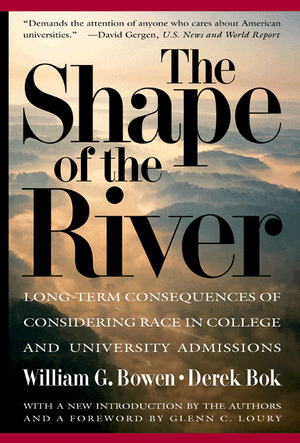You have /5 articles left.
Sign up for a free account or log in.
Relatively few major university presidents influence higher education more after they leave office than while they are in it. But William G. Bowen, who followed his 15-year presidency of Princeton University with nearly three decades of influential work as a foundation president and author, was one such person.
Bowen, whose death Thursday at the age of 83 was announced by Princeton Friday morning, helped lead Princeton through coeducation as its provost and, as its president (he assumed the post at the age of 38) from 1972 to 1988, oversaw the creation of the residential college system and saw its endowment more than triple.
From there he became president of the Andrew W. Mellon Foundation, where among other things he created an in-house research program to investigate doctoral education, college admissions, independent research libraries and charitable nonprofits. His time at Mellon also brought the establishment of several organizations that have had a significant impact on higher education, including the scholarly archive JSTOR and the art-focused ARTstor, as well as Ithaka, which seeks to accelerate the adoption of productive and efficient uses of information technology in higher education.
Bowen in Inside Higher Ed
- New book finds large gaps in graduation rates at flagship universities.
- Lessons learned from a major university presidency.
- William Bowen argues in a new book that technology can lower college costs, but there remain more questions than answers.
- William Bowen and Eugene Tobin argue for more effective, nimble and collaborative approach to institutional governance.
- Two former college presidents and scholars of higher education discuss new book on the problems -- real and imagined -- facing academe.
Bowen may be best known of all, though, for his writings and commentary on higher education. His 2000 book The Shape of the River, co-written with Derek S. Bok, the former president of Harvard University, helped make an empirical case for the importance of affirmative action in college admissions. The Game of Life, in 2002, and Reclaiming the Game, in 2005, written with colleagues from Mellon, raised important questions about the sometimes deleterious impact of college sports at highly selective colleges and universities. Crossing the Finish Line, in 2009, provided evidence that major public universities were not fulfilling their historical mission of being engines of opportunity for disadvantaged Americans.
 And 2013's Higher Education in the Digital Age argued that technology was key to slowing the "cost disease" (a term Bowen and his fellow economist William J. Baumol coined to describe spending in higher education in the 1960s) driving up college tuitions, to the dismay of politicians and the general public.
And 2013's Higher Education in the Digital Age argued that technology was key to slowing the "cost disease" (a term Bowen and his fellow economist William J. Baumol coined to describe spending in higher education in the 1960s) driving up college tuitions, to the dismay of politicians and the general public.
The famously workaholic Bowen hadn't slowed down much in recent years. This year brought the release of Lesson Plan, co-written with Michael S. McPherson, which explored some of the real (and imagined) problems in higher education today.
And he continued to weigh in on the important issues of the day. In 2014, amid a series of commencement addresses canceled by protesting students, Bowen -- filling the hole left by a speaker who withdrew at Haverford College -- castigated the protesters who had heralded the cancellation. Students, Bowen said in his address, "should have encouraged [the displaced speaker, Robert Birgeneau, former chancellor at Berkeley] to come and engage in a genuine discussion, not to come, tail between his legs, to respond to an indictment that a self-chosen jury had reached without hearing counterarguments."
Many of the remembrances of Bowen reflected as much on his personal generosity as on his professional accomplishments. Princeton's current president, Christopher Eisgruber, followed his praise of Bowen's time at Princeton and his postpresidency writings with this: "Bill was ever the teacher, and he mentored large numbers of scholars, policy experts and higher education leaders. I feel fortunate to have been in that group. Bill was always ready to offer counsel about the toughest issues facing higher education, and he did so with a combination of knowledge, insight, generosity and wit that will be missed by all who knew him. I owe Bill a great debt, as do many others who passed through this university that he loved so dearly."
"Bill made an astounding array of contributions to the way that we understand and improve higher education in this country," the Mellon Foundation said in its statement about his death. "He did so with infectious enthusiasm and exceptional intelligence that made working with Bill -- because he never saw others as working for him -- a great joy and inspiration."
Bowen was a trustee of Denison University, his alma mater, and among his many honors, he received the National Humanities Medal from President Obama in 2012, and The Shape of the River won the Grawemeyer Award.





